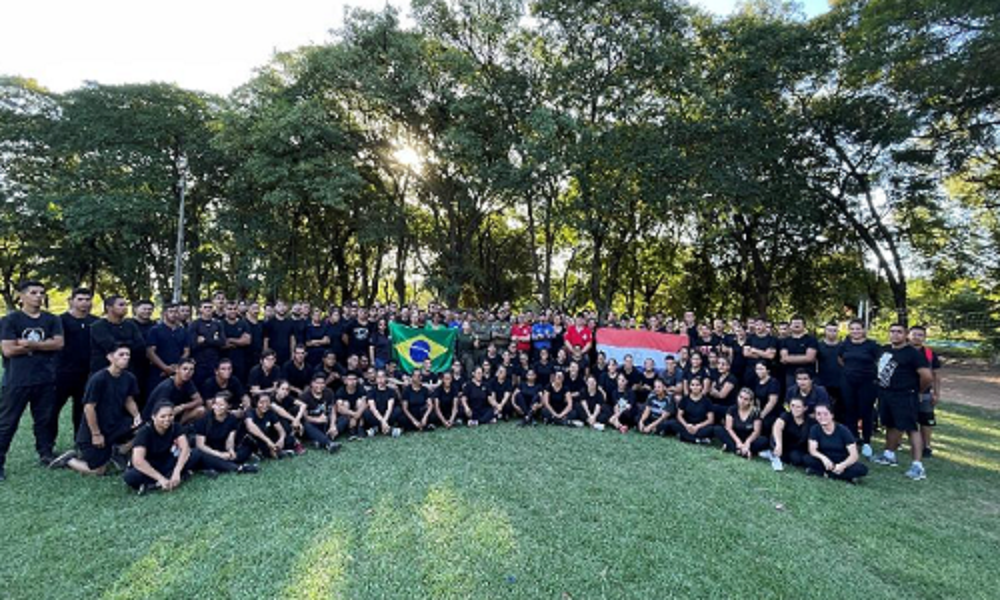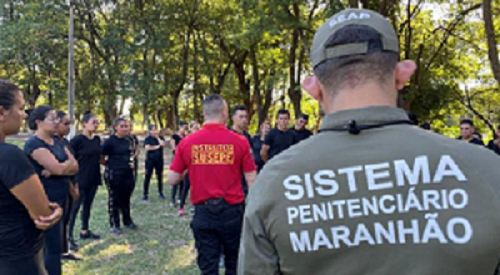
Brazil, 14 April 2023 - The activities of organized groups in Latin American prisons are an increasingly present reality throughout the region. To support Paraguay in its efforts to strengthen the management and security of its prisons, the United Nations Office on Drugs and Crime (UNODC) in Brazil promoted, for the first time in the country, specialized training for students of the Higher Technical Prison Institute (ITSP), in line with minimum standards and international best practices in prison management.
The specialized training on Prison Routines and Procedures was conducted with the support of the Ministry of Justice of Paraguay, in an unprecedented cooperation with the State Secretariat of Penitentiary Administration of Maranhão (SEAP-MA) and the Superintendence of Penitentiary Services of Rio Grande do Sul (SUSEPE) of Brazil, from 14 to 16 April. The training was a result of technical dialogues promoted by UNODC to strengthen the institutional capacities of Brazil and Paraguay in terms of training and capacity building on prison issues to prevent crime in prisons. At the invitation of UNODC, the Secretariats participated in a technical exchange visit to the country in November 2022 to analyze opportunities for cooperation and curriculum formulation.
More than 170 students participated in the five-day training course, which included basic instruction on prison routines and procedures, such as the use of handcuffs and non-lethal techniques, self-defense, and simulations of crisis situations.

For Paraguay's Minister of Justice, Daniel Benítez, the training curriculum presents the necessary elements to help Paraguay improve its prison management. According to the minister, "It is historic that in Paraguay there is a Higher Technical Institute where new agents already become professionals, so it is a great challenge for them to absorb all the knowledge that will be given to them in each module.”
One of the participants highlighted the technical quality of the coaching team, formed by Brazilian criminal police officers from Maranhão and Rio Grande do Sul. "We want to change and make a difference so that we can achieve what we set out to do as future prison officers," he said.
PRIS-COOP Project - The training was conducted as part of the PRIS-COOP project of UNODC, with the support of the United States Department of State. The initiative promotes the dissemination and adoption of innovative and inter-institutional practices to strengthen prison management and the fight against organized crime in Brazil and Paraguay, in line with international minimum standards.
UN Conventions - The organization of the training promoted by UNODC is related to its role as guardian of the International Convention against Transnational Organized Crime, of the three International Drug Control Conventions, and of the United Nations Standard Minimum Rules for the Treatment of Prisoners, the Mandela and Bangkok Rules.
For more information on UNODC's work on prison reform, please visit here. To learn more about UNODC's work on organized crime, go here.
Learn more: http://www.agenda2030.com.br/